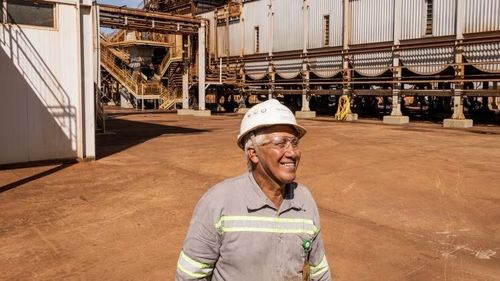BP to acquire full ownership of BP Bunge Bioenergia, pause development of 2 proposed SAF and renewable diesel projects

SOURCE: BP
June 21, 2024
BY Erin Voegele
BP on June 20 announced an agreement to acquire Bunge’s 50% interest in its BP Bunge Bioenergia S.A. joint venture (JV). The company also said it is scaling back plans for the development of new sustainable aviation fuel (SAF) and renewable diesel projects at its existing sites.
Bunge and BP in July 2019 announced plans to create the BP Bunge Bioenergia JV, which combined each company’s Brazilian biofuel, biopower and sugar businesses into a 50:50 standalone JV. The JV was officially launched in December 2019.
Advertisement
Advertisement
Under the acquisition agreement announced June 20, BP will become sold owner of the JV, which the company said will enable it to accelerate value creation through integration with BP’s trading and technologies capabilities. The enterprise value of the stake to be acquired is approximately $1.4 billion. Subject to regulatory conditions, the acquisition is expected to be complete by the end of 2024.
Once the transaction is complete, BP will have the capacity to produce approximately 50,000 barrels per day of ethanol equivalent from sugarcane through BP Bunge Bioenergia’s 11 agro-industrial units across five Brazilian states. BP said full ownership of the JV will offer the company potential to unlock further growth opportunities in the region, and to develop new platforms for bioenergy, such as next-generation ethanol, SAF and biogas.
Advertisement
Advertisement
In parallel with the acquisition, BP also announced it is scaling back plans for development of new SAF and renewable diesel projects at its existing sites. The company said it is pausing planning for two potential projects while continuing to assess three for progression but did not specify the locations of those facilities.
Despite BP’s plans to pause development on two of its proposed renewable diesel and SAF projects, the company said it aims to grow its biofuels production and biogas supply to approximately 100,000 barrels per day and 70,000 barrels of oil equivalent per day, respectively, by 2025. As part of those plans, BP said it continues to expect to more than double its biofuels coprocessing volumes to 20,000 barrels per day by 2025, with coprocessing investment plans unchanged.
A full copy of BP’s announcement is available on the company’s website.
Related Stories
The U.S. Energy Information Administration maintained its forecast for 2025 and 2026 biodiesel, renewable diesel and sustainable aviation fuel (SAF) production in its latest Short-Term Energy Outlook, released July 8.
XCF Global Inc. on July 10 shared its strategic plan to invest close to $1 billion in developing a network of SAF production facilities, expanding its U.S. footprint, and advancing its international growth strategy.
U.S. fuel ethanol capacity fell slightly in April, while biodiesel and renewable diesel capacity held steady, according to data released by the U.S. EIA on June 30. Feedstock consumption was down when compared to the previous month.
XCF Global Inc. on July 8 provided a production update on its flagship New Rise Reno facility, underscoring that the plant has successfully produced SAF, renewable diesel, and renewable naphtha during its initial ramp-up.
The USDA’s Risk Management Agency is implementing multiple changes to the Camelina pilot insurance program for the 2026 and succeeding crop years. The changes will expand coverage options and provide greater flexibility for producers.
Upcoming Events










